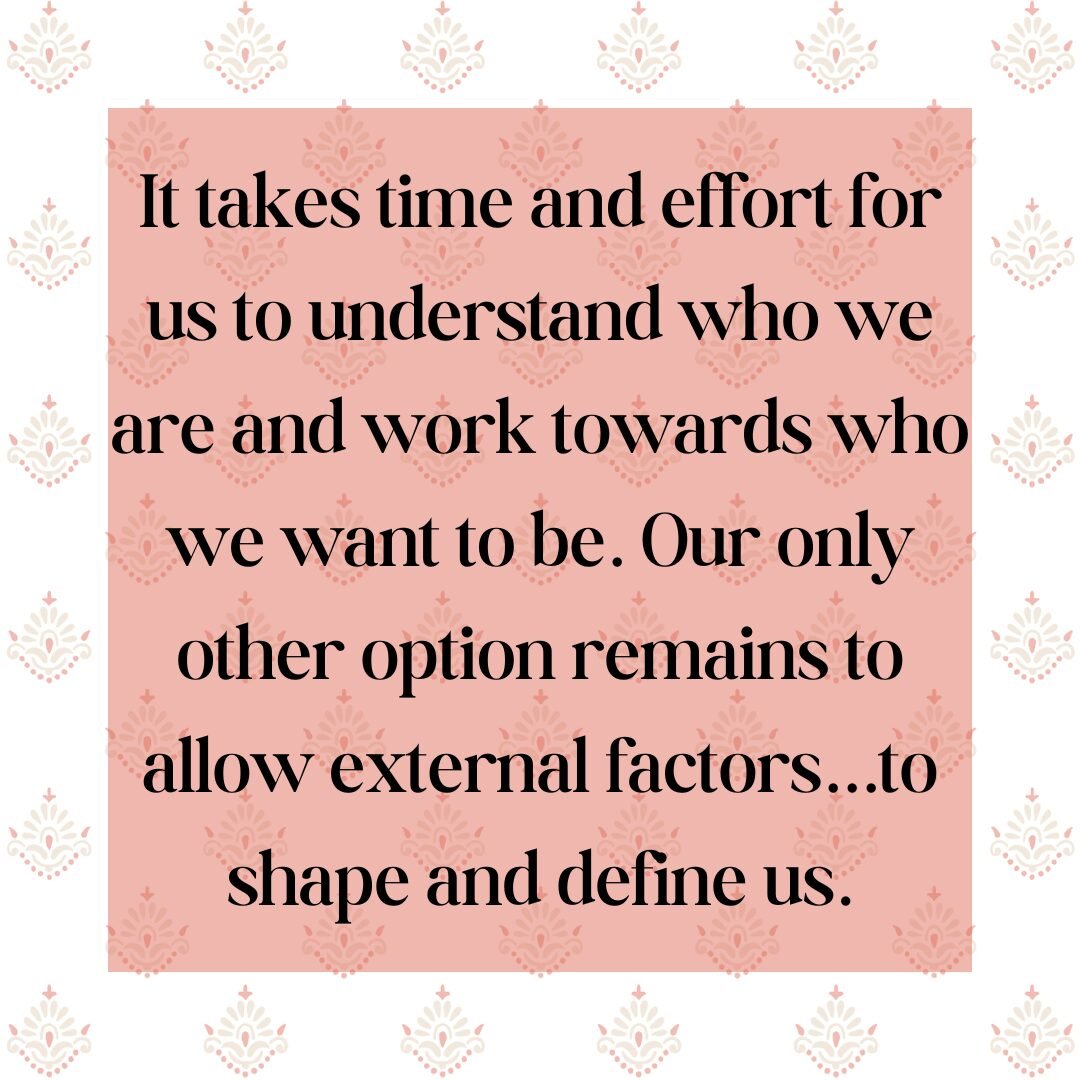A circulatory heated argument. An unyielding discussion. A refusal for resolution.
Your words go unheard. Tears form a glaze over your eyes. Give others a taste of their own medicine. Screams swell up against your clenched jaw. Then, an explosion of emotions.
“Give others a taste of their own medicine”. We’ve all heard this notion at some point. Respond to hatred with hatred, anger with anger, betrayal with betrayal, rudeness with rudeness, cruelty with cruelty, and insults with insults.
If who we are is determined by external factors, when do we get to be, us? If our actions and responses are swayed by others’ actions, words and behaviors, when are we who we choose to be? When do we get to exist? With each impulsive and defensive reaction, we lose ourselves to the situation. We begin to stray further and further away from ourselves, until we reach a point where intimacy and vulnerability with ourselves begins to elicit fear.
I think that the notion of giving others a taste of their own medicine, results in a spread of hatred and negativity. If you were a rude person and someone decided to give you a taste of your own medicine, chances are, you would not recognize their rudeness as a response to your rude actions. You might think that is the way they are or perhaps they are taking their anger and frustration out on you. Then you might decide to give them a taste of their own medicine. This can lead to a vicious cycle of rudeness. This cycle continues endlessly because we don’t stop being deliberately rude when the other person doesn’t get the hint. Chances are we may act even more rudely next time in hopes to give them an even greater dose of their own medicine. All of this turns us into individuals who become accustomed to experiencing rudeness and responding with rudeness — though we might label our actions as necessary and appropriate.
I believe that by hating on a hater, we become a hater as well. And by bullying a bully, we become a bully. After the first attempt, do our “giving medicine” actions continue to be deliberate? Or do they become a habit? Is there a different way to respond?
I think our responses should vary depending on who we are. Each of us are born with and develop unique personalities, perspectives, experiences, temperament and idiolect that shape the way we interact with others. We may be empathetic, positive, patient, understanding or great at communication, listening and conflict resolution. These personality traits and skills enable each of us to express ourselves in different ways. Therefore it takes trial and error, and self-reflection to find the approach that works for us emotionally, mentally, and spiritually.
Just to share, my approach to rudeness and hatred is to let the other person be. I share my difference in opinion and express a willingness to have a conversation, but with no expectation for them to accept, understand or adopt my views. I believe everyone is on their own journey, so I have no intention to force anyone to change. But as a way to remain true to myself, I will always do my best to stand up for others and support those I can.
Another approach I take with negativity is: adding a pause. It is natural to want to respond and react to others. However, I have noticed in my life that impulsive reactions to others doesn’t get me anywhere positive, helpful or productive. Instead, I feel confused and distant from myself in the moments and days after reacting. Adding a pause before responding to others allows me to take a moment and reflect on my thoughts and beliefs on the conversation. I get time to find the right words. I get time to phrase a respectful sentence. And to also determine if this conversation (with this specific individual) is one I am interested in having. I then figure out the direction I would like to take the conversation — an open, welcoming and enriching interaction (or a debate with a winner and loser).
Self-reflection is a powerful tool to uncover and learn about ourselves. It helps develop intimacy and vulnerability with ourselves so that we can identify the notions, thoughts and behavior that do not serve us. After recognizing the restrictive and hurtful notions, we can take necessary steps to change. It can be terrifying to change because we might not know who or what to change into, but trial and error works here too. (Also, read our blog post Observe the Distance which shares a different perspective on responding to fear.) It takes time and effort for us to understand who we are and work towards who we want to be. Our only other option remains to allow external factors such as people, experiences, words, actions and thoughts, to shape and define us. So, who do you want to be?
A circulatory heated argument. An unyielding discussion. A refusal for resolution.
Your words go unheard. You pause and take in a calm, deep breath. I’m not going to let others define me. You accept the situation for what it is. Then, a mindful response.
Proofreader: Kellyn Jeremy

Leave a Reply